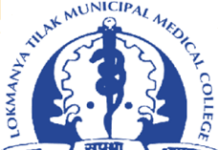Infertility affects millions of people in the reproductive age group worldwide, and impacts their families and communities. India alone has 27.5 million infertile people, including men and women. What started as a predominantly urban problem has now rapidly grown into the remaining sections. Infertility affects both men and women equally and has a diverse etiology including unexplained factors. However, environmental and lifestyle factors like smoking, excessive alcohol consumption, obesity, and exposure to pollutants have been linked to lower fertility rates in both men and women.
On World Women’s Day, The Indian Practitioner interviewed Dr. Meghana Nyapathi, Clinical Head and Fertility Specialist, Oasis Fertility, Bengaluru, and Dr. Sulbha Arora, Clinical Director, Nova IVF Fertility, Mumbai, for their views on infertility and its management.
The Indian Practitioner (TIP): What is the thumb rule approach when a couple presents for the first time with the difficulty of conceiving? What diagnostic tests are available and when should they be done?
Dr.Meghana Nyapathi (Dr.MN): The first and foremost thing is to investigate the couple, take detailed inputs of their medical history, lifestyle, etc., and then advise certain basic fertility tests that can help in decoding the reasons for infertility. For some, natural conception could be possible with slight lifestyle modifications or just with the right timing of intercourse.
There are a lot of diagnostic tests including blood tests, scans, genetic tests, etc. both for males and females depending upon their condition.
Diagnostic tests available for women:
1. Ultrasound
2. Blood Tests
3. Hysteroscopy/Laparoscopy
4. Tubal Patency Testing
5. Genetic Testing
Diagnostic tests available for men:
1. Semen Analysis – Basic and Advanced tests
2. Blood Tests
3. Ultrasound
4. Genetic Testing
The treatment approach varies depending on the reasons for infertility.
Dr.Sulbha Arora (Dr.SA): When a couple presents with the problem of conceiving, first a detailed medical history is taken. They are asked about their menstrual pattern, duration of infertility, previous pregnancies if any, sexual life, lifestyle and habits such as smoking, past tests or treatments, current medication, and other health issues they suffer from to determine the underlying cause of infertility. The physical examination includes calculating the BMI for both partners, and doing a baseline ultrasound scan for the woman to rule out any pathologies and to assess the ovarian reserve. The couple is then advised to undergo certain screening tests that include the hormonal profile for the woman, a semen analysis for the man, and an infectious disease screening for both of them. Additional tests such as tubal patency testing for the woman or sperm DNA fragmentation for the man may be advised for those who require them.
TIP: What proportion of male, female, and both partners are seen to have infertility issues in clinical practice, and what are the main causes of infertility in males and females?
Dr.MN: Though many don’t believe or accept it, men and women equally contribute to infertility. The possible causes of infertility in males could be infection, varicocele, exposure to toxic chemicals, medical issues, genetic disorders, undescended testicles, hormonal imbalance, diabetes, excessive consumption of alcohol, smoking, obesity, stress, etc. PCOS, advanced maternal age, endometriosis, sexually transmitted diseases, uterine anomalies, obesity, cancer, thyroid disorders, tubal disease, genetic disorders, etc. can cause infertility in females.
Dr.SA: One out of six couples of reproductive age face problems conceiving. 30% of cases are due to a problem with the female partner, 30% with the male, in 10% it is both male and female partners, and the rest are unexplained. The factors causing infertility in females can be attributed to fallopian tube damage or blockage, ovulatory and hormonal disorders such as PCOS, diseases such as endometriosis, uterine pathologies such as fibroids or polyps, reduced ovarian reserve etc. Male factor problems are usually due to low sperm counts or motility, high DNA fragmentation, erectile or ejaculatory problems, absent sperm count (azoospermia) etc.
TIP: What are the modifiable lifestyle risk factors for infertility, or what changes in lifestyle can improve fertility in men and women?
Dr.MN: Quitting smoking and reducing alcohol intake can boost fertility in both men and women. Weight management, a balanced diet, and proper sleep can go a long way in improving conception.
Dr.SA: Maintaining a healthy BMI increases the couple’s chances of conceiving and maintaining a healthy pregnancy, in case of both men and women. Incorporating a healthy, nutritious diet and a regular exercise plan is therefore beneficial. Any form of exercise that one enjoys can be attempted, such as walking, swimming, cycling, jogging, aerobics, working out at a gym, or playing a sport. A diet consisting of plenty of fresh fruits, vegetables, whole grains, pulses, lentils, and legumes is advisable. Canned and processed food is best avoided as it contains preservatives that can be harmful to fertility. Smoking reduces the egg quantity and quality in case of women who smoke. For men it causes a drop in all the semen parameters such as count, motility, normal forms and also causes a high DNA fragmentation. Couples who smoke (men or women or both) are thus at a higher risk of infertility, miscarriages, and ectopic pregnancies. For couples who smoke, now is a good time to quit. Alcohol does not have as strong a correlation, especially if consumed in moderation; however it is advisable for heavy drinkers to reduce the quantities as heavy consumption may again delay time to pregnancy. Positive lifestyle changes such as drinking adequate water and getting enough sleep are also helpful for those trying to conceive. Reducing stress levels, though easier said than done, should be tried, whether by means of yoga, meditation, hobbies that help one relax such as listening to music, learning a new language or skill, gardening, or playing a musical instrument, spending time with their pets etc.
TIP: What is the step ladder medical treatment – (supplements, medicines, and procedures) for couples with infertility problems, and what are the advantages and risks of the drugs and procedures used?
Dr.MN: Medical Management in Infertility:
In women with ovulatory dysfunction, induction of ovulation with oral ovulogens along with gonadotrophins may be enough to help them conceive. Along with ovulogens, other supplements in the form of folic acid, vitamin D and E, hypoglycemic drugs in women with impaired glucose tolerance, etc. will help improve their chances.
Tubal patency testing and hysterolaparoscopy will have to be performed in indicated cases like Resistant PCOS, presence of big myomas, endometriotic cysts, hydrosalpinx, etc.
In women on gonadotropins, dose modulation needs to be done to avoid Ovarian Hyperstimulation Syndrome.
In men with abnormal seminal parameters, antioxidants, SERMs, gonadotrophins, etc. can be used in indicated cases based on their tests to improve seminal parameters. Surgical sperm aspiration is one of the treatment options for men with very low / nil sperm count.
Dr.SA: Some medicines are given the female partner to help produce one or more mature eggs, depending on the treatment being followed. These are in the form of either tablets (clomiphene, letrozole), or injections (hMG, FSH). These drugs are by and large safe, and side effects are rare. One of the concerns with ovarian stimulation is hyperstimulation, where the ovaries may produce more eggs than what was intended. Their doctor will guide them about what needs to be done in such a situation. Progesterone supplements that are given after ovulation or egg retrieval can cause some amount of drowsiness or lethargy, though some women may feel nothing at all.
Antioxidants are another group of medicines that may be prescribed to either the male or the female partner, to improve the quality of the sperms or the eggs, and these usually do not have any major side effects either.
Patients may be prescribed certain prenatal vitamins such as folic acid, calcium, vitamin B12 and vitamin D3 if required.
Assisted reproductive technologies (ARTs) help couples to conceive and fulfill their dream of parenthood. These include (but are not limited to):
• Intrauterine insemination (IUI) -is a simple process in which the husband’s sperm sample is filtered to collect the most motile sperms, which are then transferred right into the wife’s uterine cavity around the time of ovulation, bypassing the barriers of vaginal acidity and cervical mucus hostility, bringing millions of sperms into close proximity with the released egg, making it easier for them to meet and fertilize. This is beneficial for women with anovulatory disorders such as PCOS, men with erectile or ejaculatory dysfunction, mild abnormal semen parameters, and couples with non-consummation of marriage, women with dyspareunia and couples with unexplained infertility. IUI requires patent, functional fallopian tubes, and it is not advisable in cases of damaged or blocked tubes.
• Invitro fertilization (IVF) and Intracytoplasmic Sperm Injection (ICSI) – In these procedures, the eggs are aspirated out through the vagina under short general anesthesia, and fertilized with sperms in the laboratory. The resulting embryo(s) are then transferred into the woman’s uterus, where if they implant and grow, the subsequent pregnancy proceeds like any natural pregnancy. This process is ideal for women with blocked fallopian tubes, low ovarian reserve, severe endometriosis, previous failed IUIs, and advanced age. For severe male factor such as very low or zero count / motility, ICSI is preferred over IVF.
• Egg freezing – is an excellent option for women who wish to preserve their fertility, as they are not planning a marriage or child bearing as of now and are concerned about their ticking biological clock. This process does not prevent her from a natural pregnancy later, nor does it precipitate a premature menopause. The frozen eggs can be thawed at a later time in life when the woman wishes to conceive, as natural pregnancy is no longer possible. They are then injected with her partner’s (or a donor’s, as the case may be) sperms using ICSI and the resulting embryo(s) are transferred into her uterus to make her pregnant.
TIP: What is the role of psychological or mental health of couples in approaching and managing infertility issues?
Dr.MN: A positive and relaxed mind is necessary for both partners to achieve parenthood as stress and anxiety can affect ovulation in women, sperm parameters, and sexual function in men which can have a negative impact on fertility and infertility treatment outcomes as well.
Dr.SA: Fertility struggles and the ensuing treatments can be stressful and lead to anxiety for some couples. Feeling restless, lonely, agitated or emotionally vulnerable is understandable. It’s important for couples undergoing fertility treatments to take care of both, their mental and physical health during the process. Easier said than done, one needs to be able to combat stress and stay calm. The better prepared they are, the smoother their treatment will be. Therefore, it is essential for them to have thorough knowledge about their treatment, how the process works, and what to expect. Get all their doubts cleared by their doctor before initiating the treatment.
TIP: What is the role of menstrual hygiene when it comes to infertility and what is the importance of reproductive health?
Dr.MN: Poor menstrual hygiene can result in reproductive tract infections which can lead to infertility. Reproductive health is very essential to achieve parenthood and also to prevent certain cancers that are sexually transmitted
Dr.SA: Poor menstrual hygiene can invite reproductive and urinary tract infections that can in turn impact fertility. Menstrual hygiene is related to one’s overall well-being. For safe menstrual practices, women require access to clean water, sanitation, and hygiene amenities. Menstrual hygiene when maintained well could lead to lower incidences of pelvic infection and infertility. Safe menstrual practices include changing sanitary napkins or tampons every 4-6 hours, washing the genital area properly, avoiding the use of reusable or washable contaminated material such as rough cloth or cotton in place of napkins or tampons, proper disposal of napkins and tampons, and proper cleaning of menstrual cups.
Note: The views expressed in this interview are the experts’ own and are not endorsed directly or indirectly by The Indian Practitioner.


























